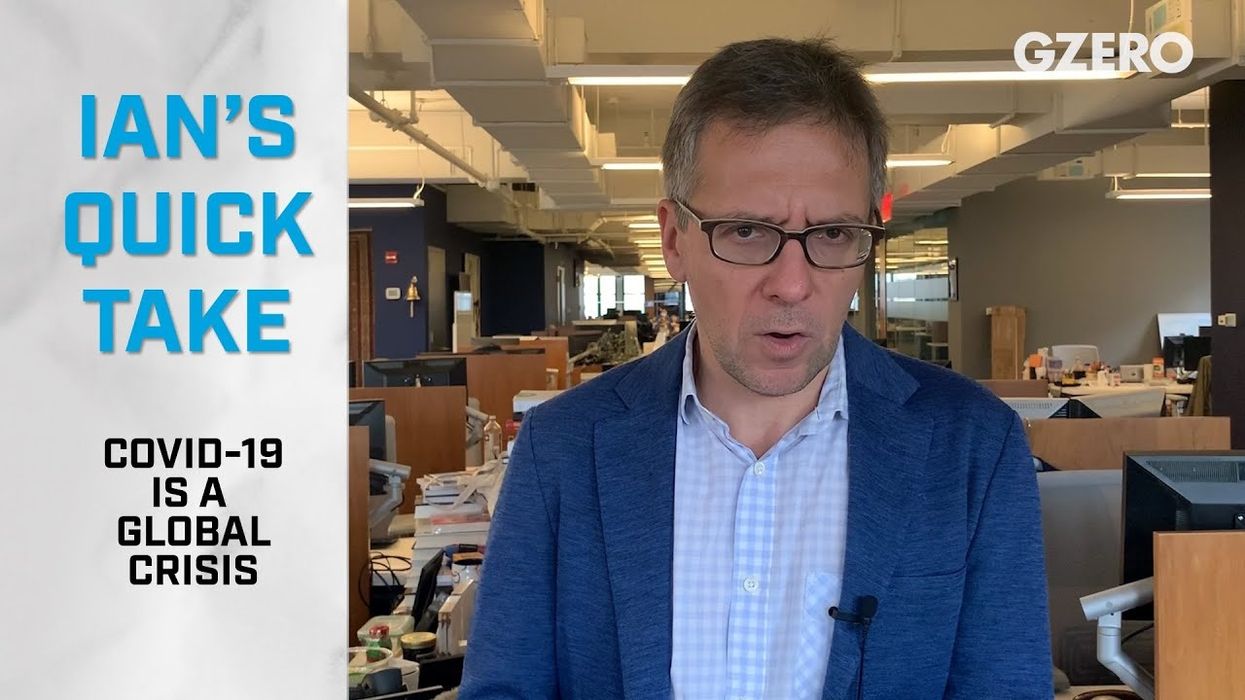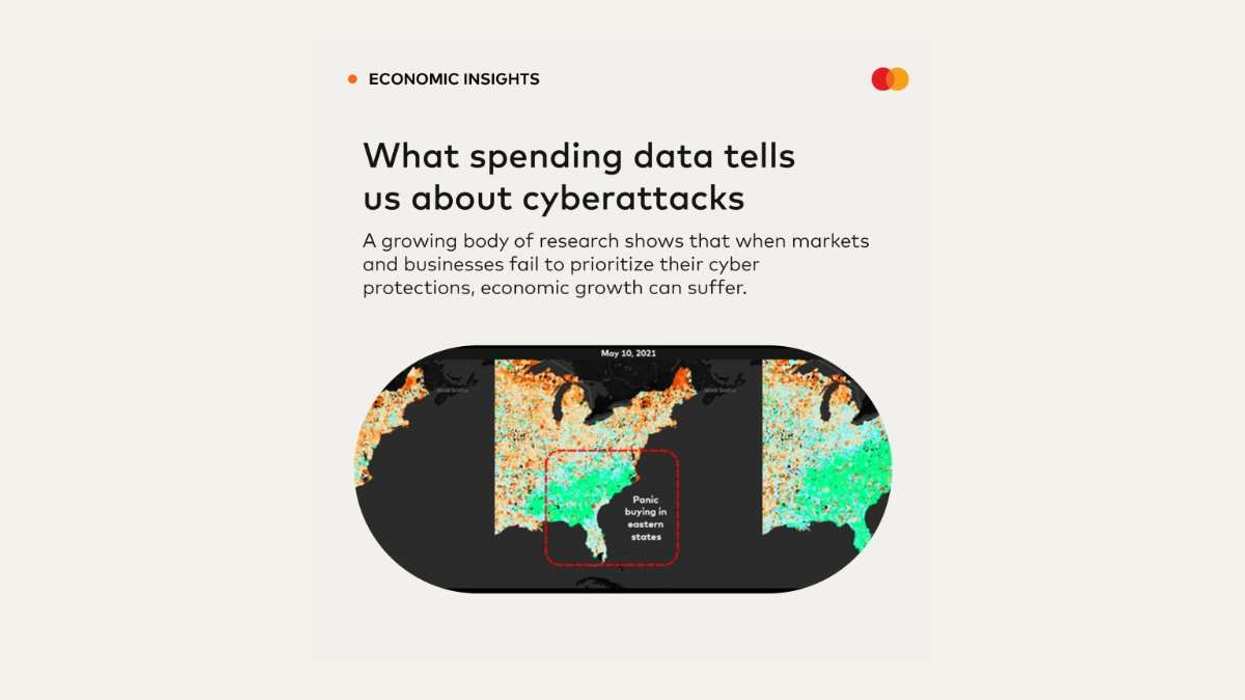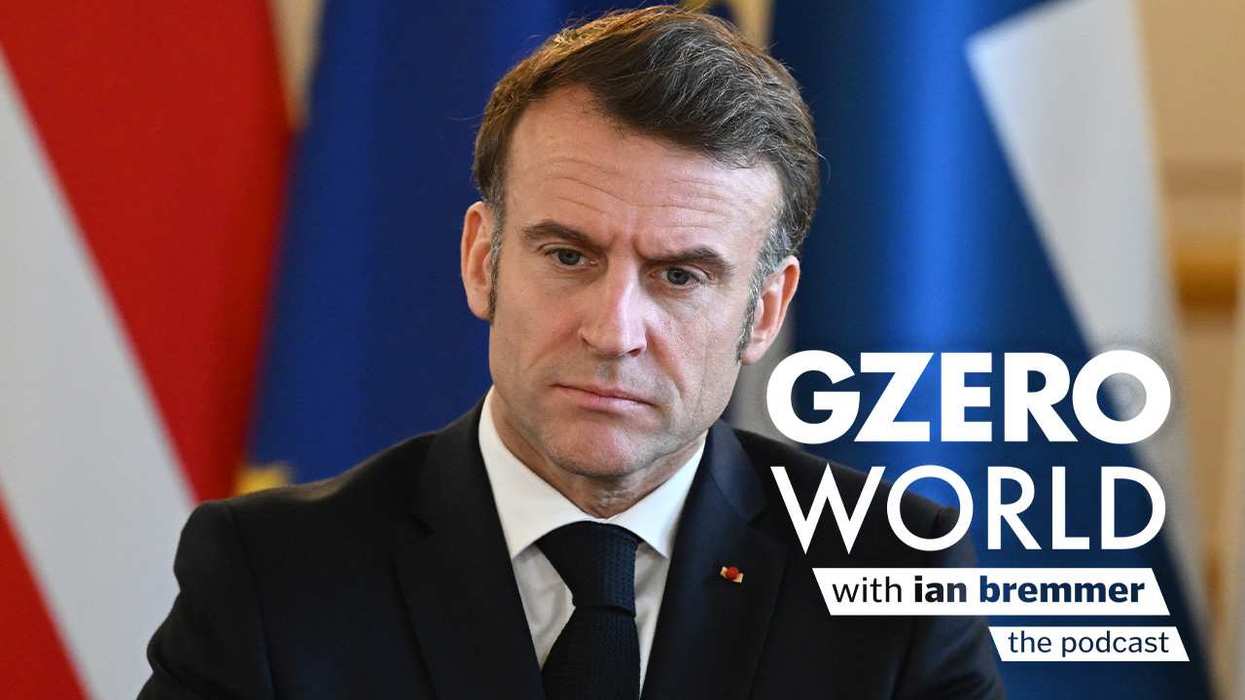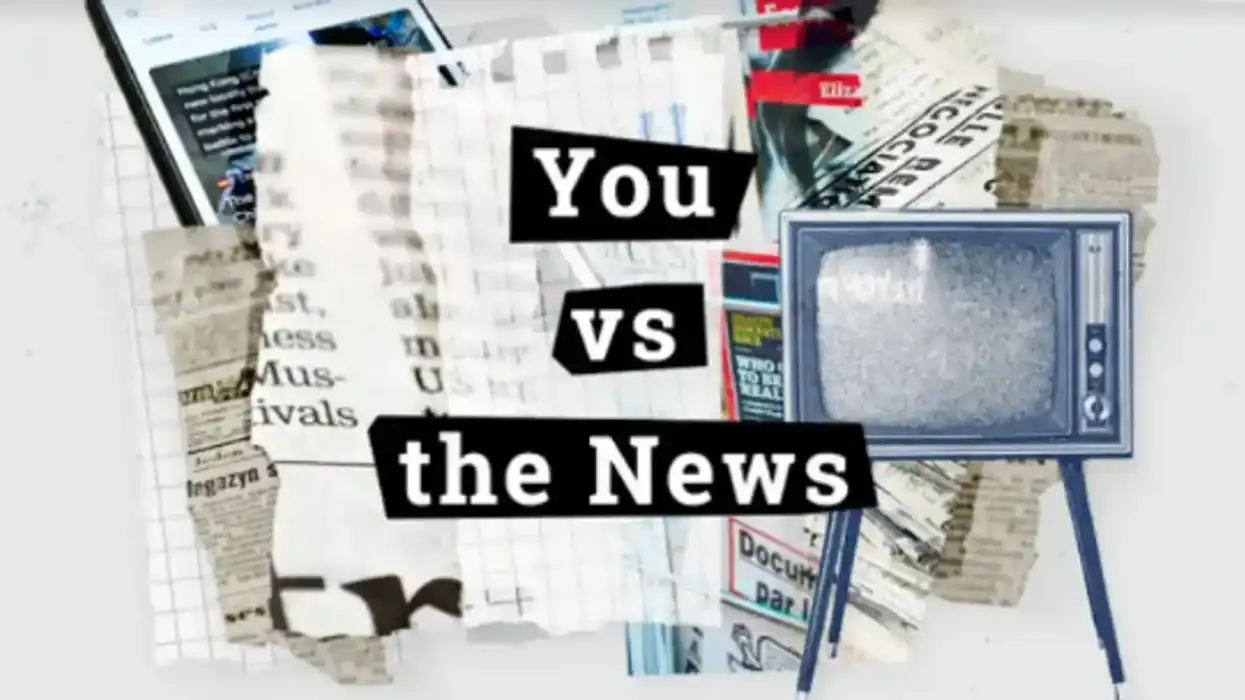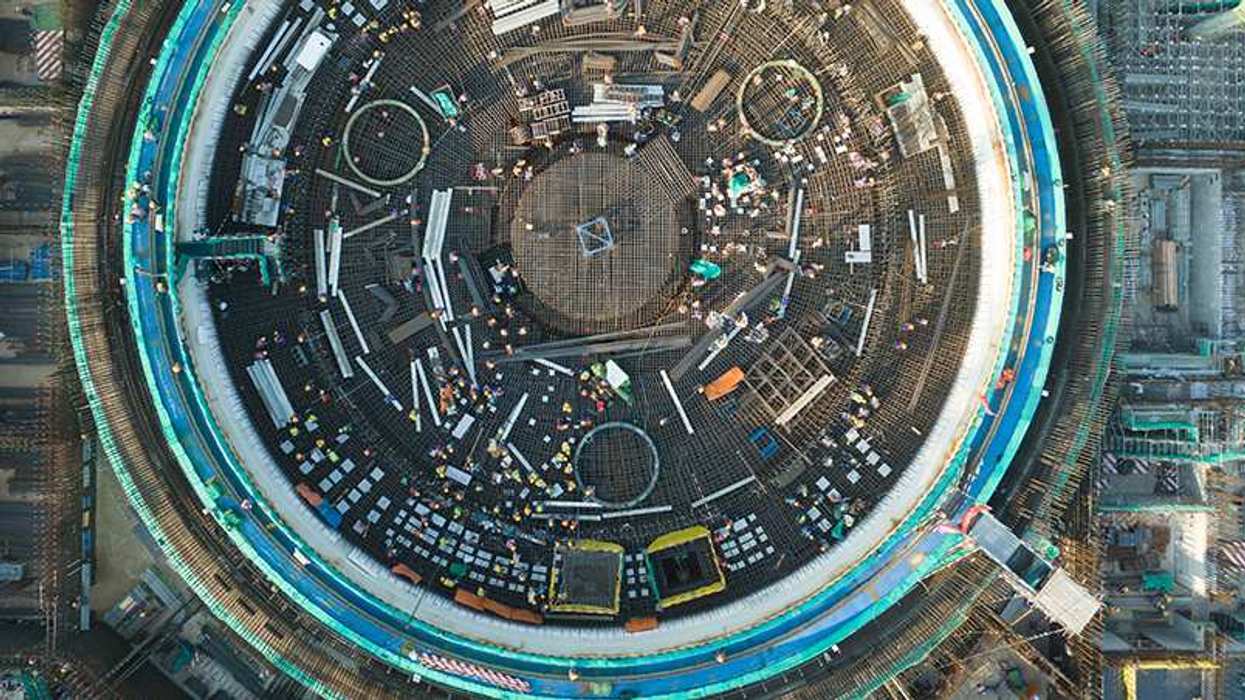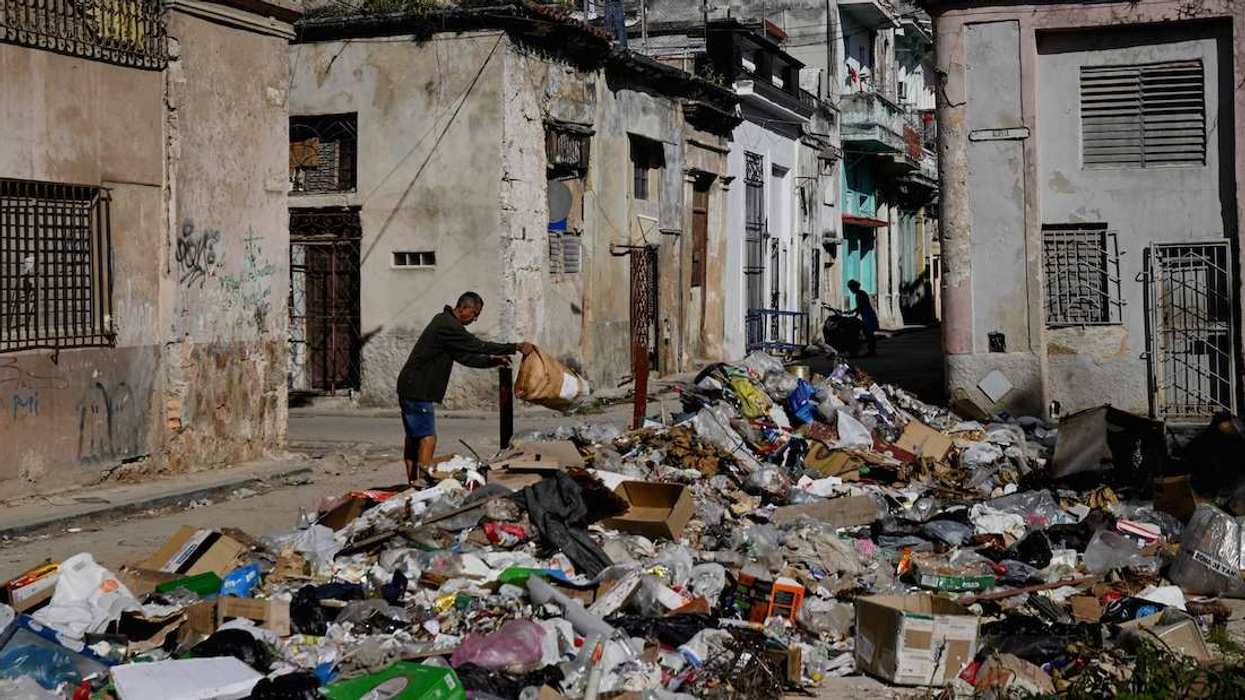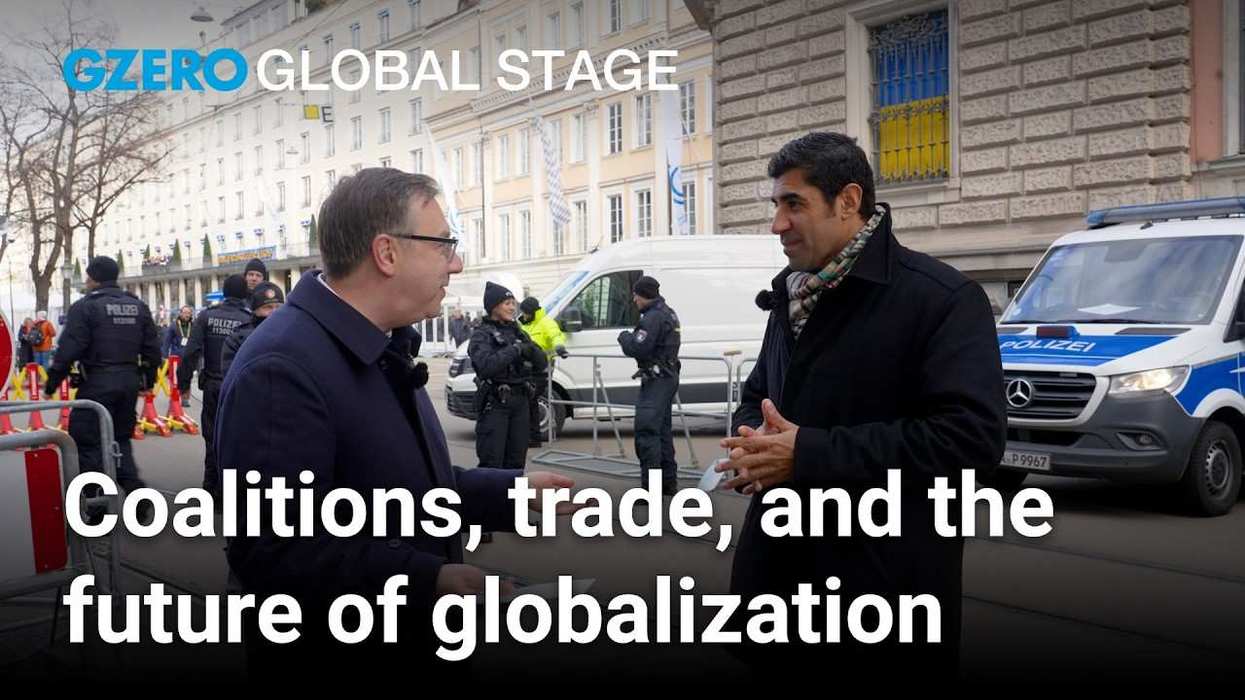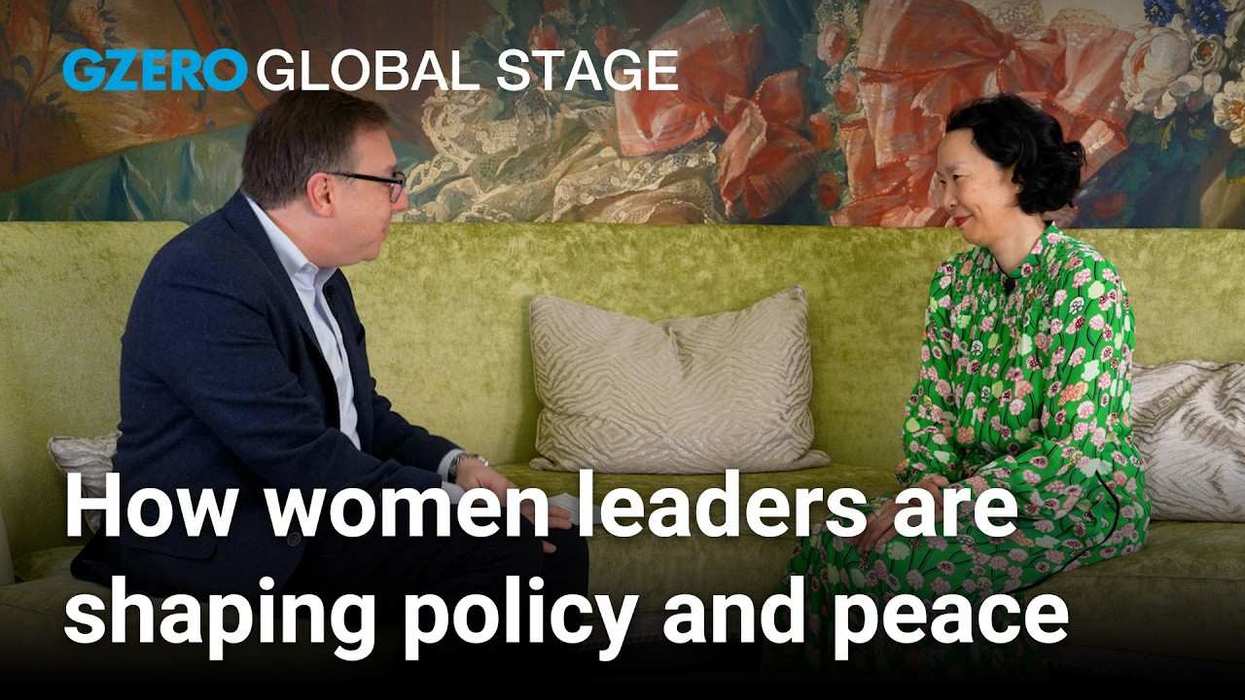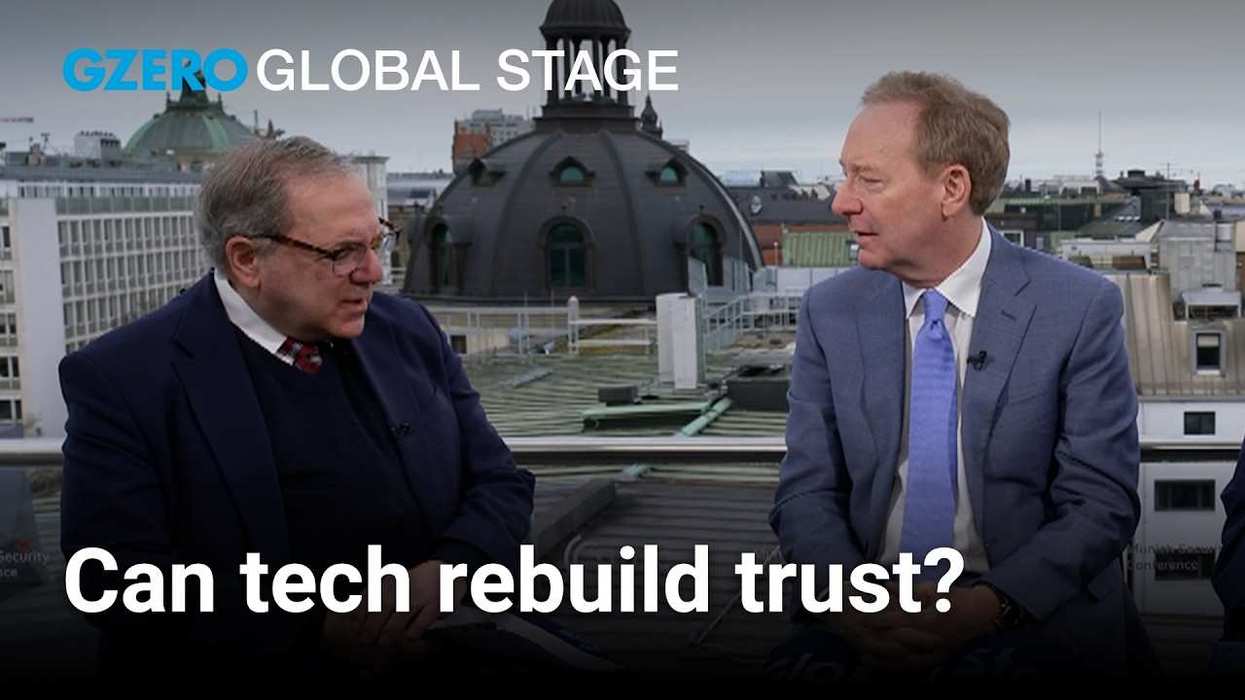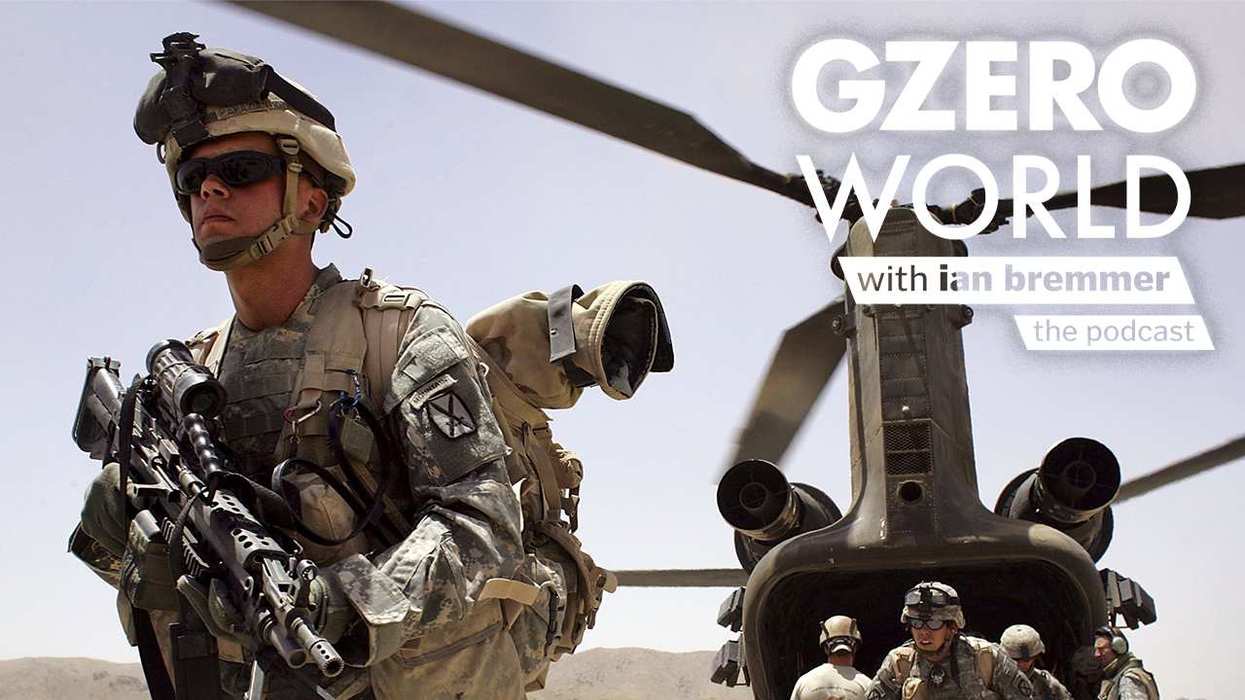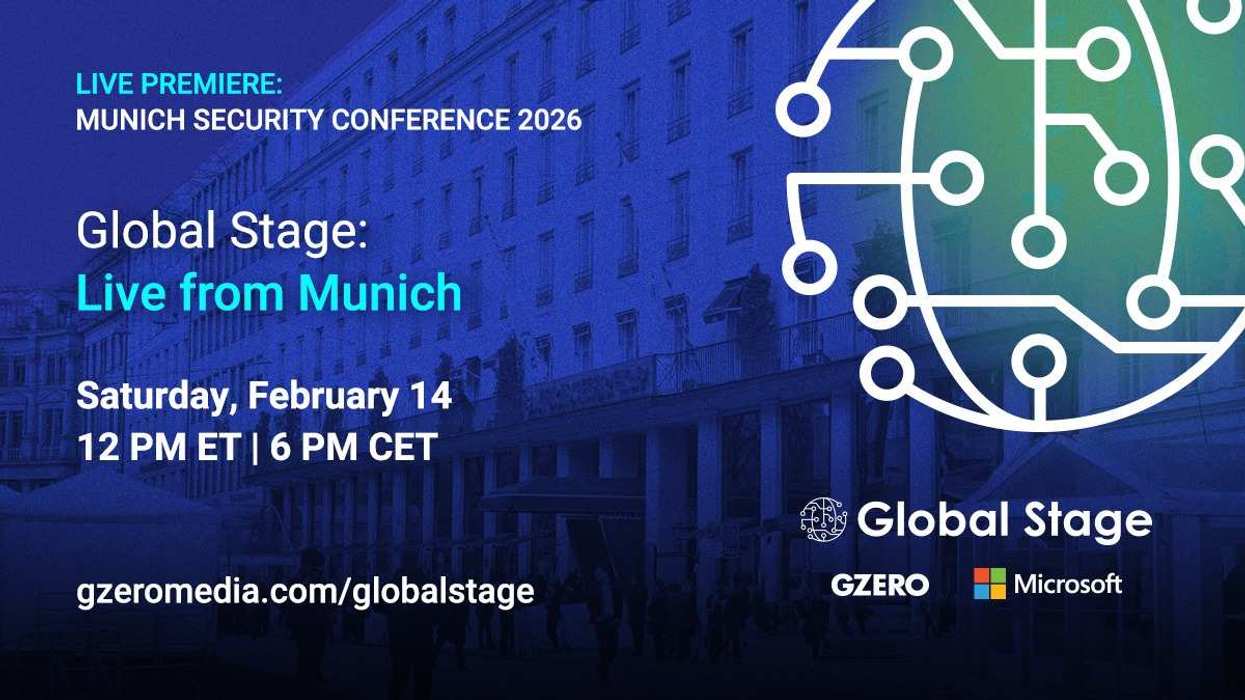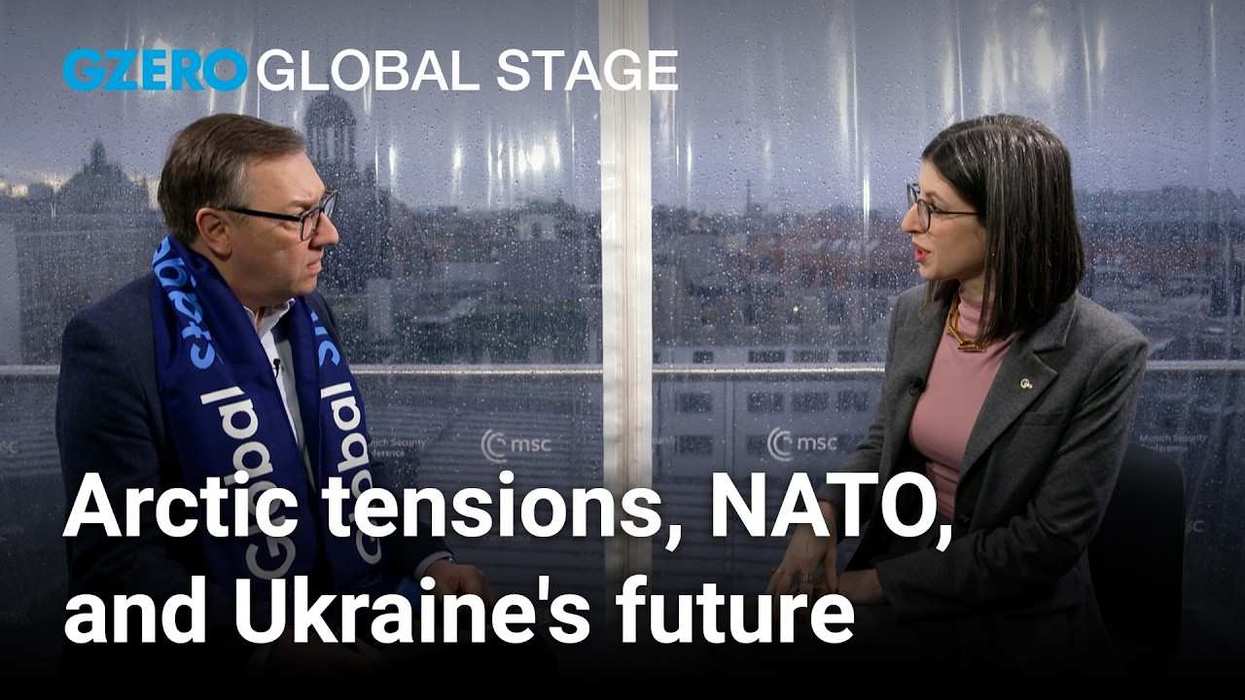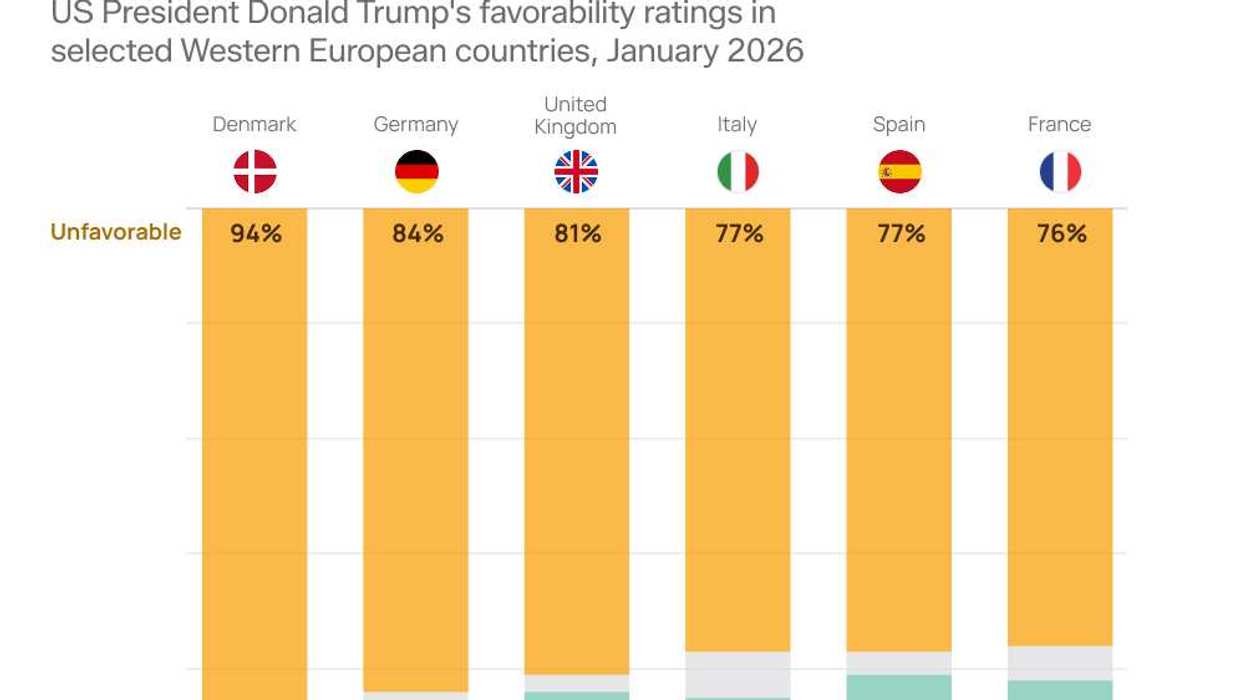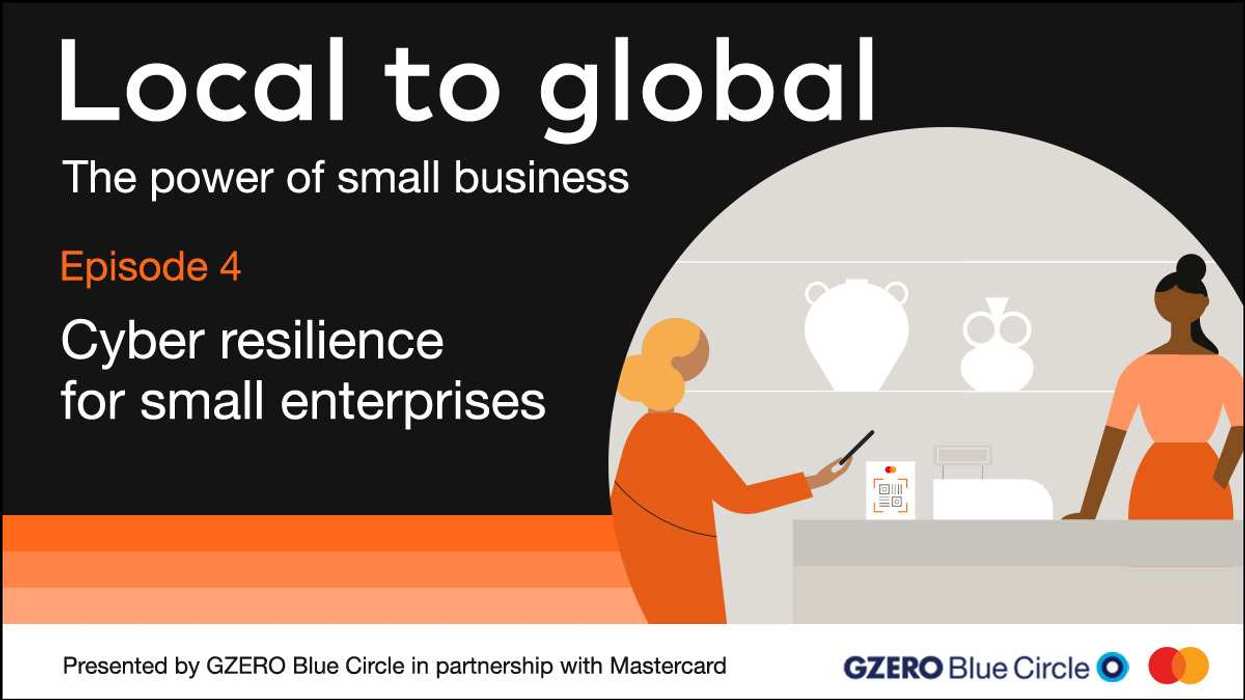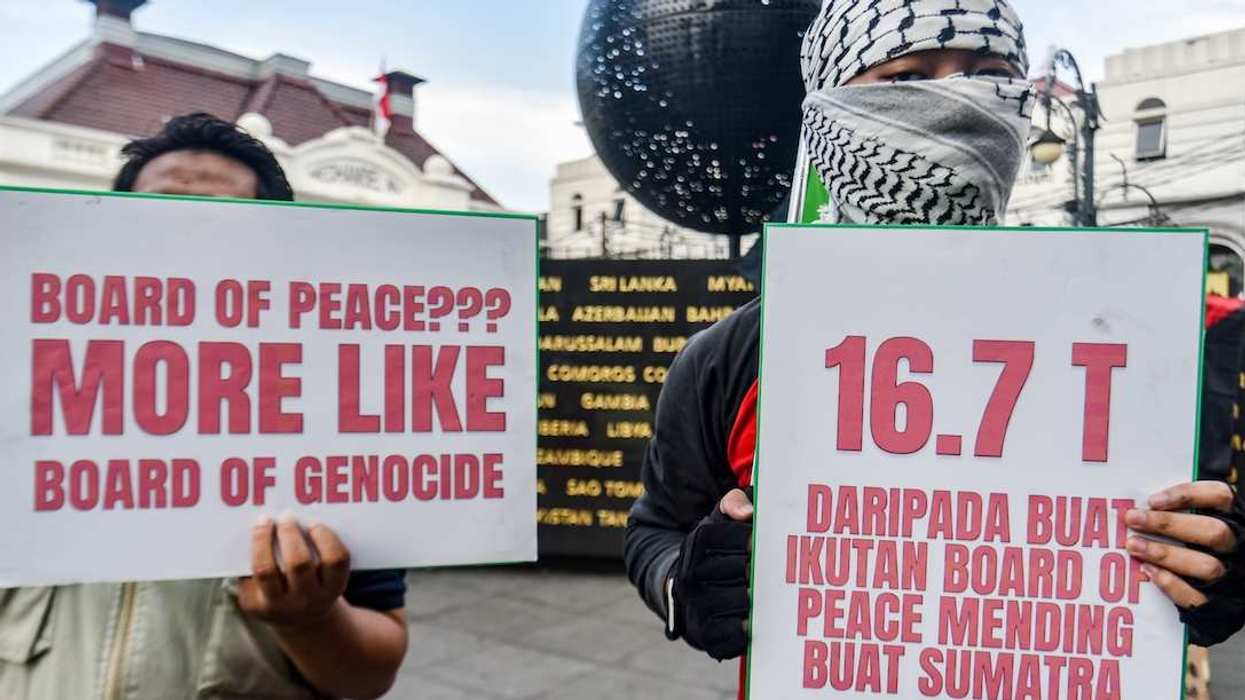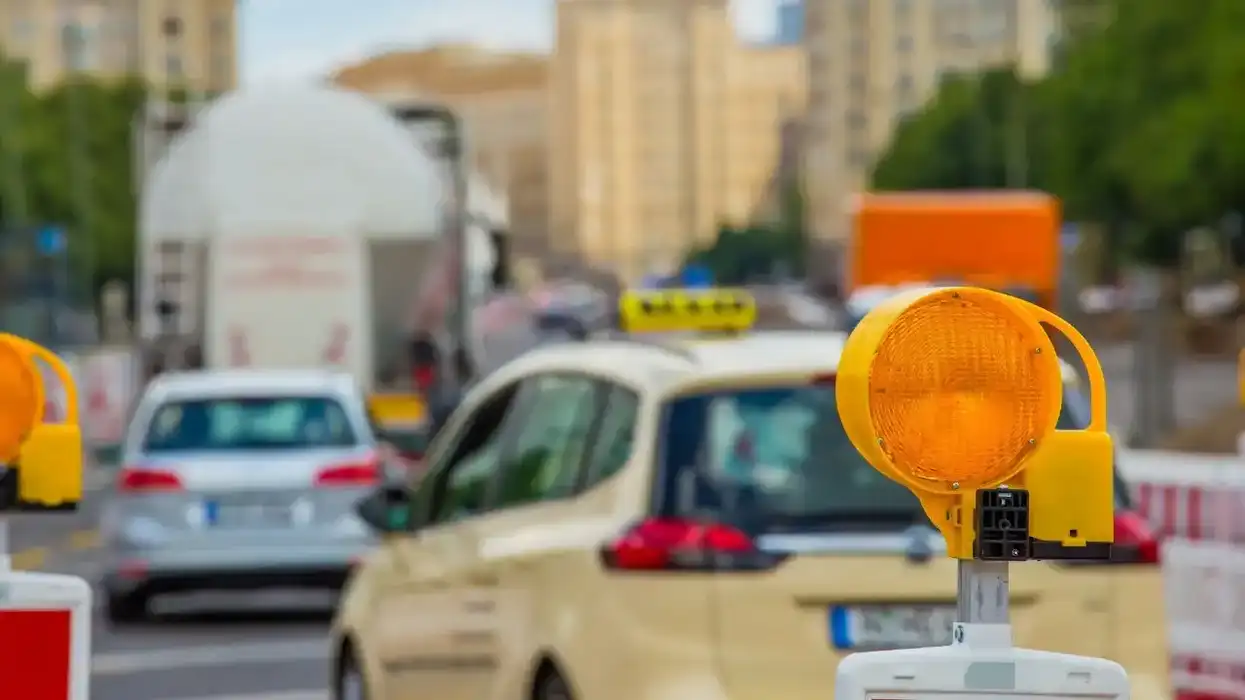VIDEOSGZERO World with Ian BremmerQuick TakePUPPET REGIMEIan ExplainsGZERO ReportsAsk IanGlobal Stage
Site Navigation
Search
Human content,
AI powered search.
Latest Stories
Sign up for GZERO Daily.
Get our latest updates and insights delivered to your inbox.
Global Stage: Live from Munich
WATCH RECORDING
popular
Presented by
The lack of international political response, the politicization of the crisis, leads to less efficiency, to longer shutdowns, and extensive economic impact.
In the US: governors and mayors are doing different things. If decisions on what is or is not an essential good differ from state to state, it's hard to put together a supply chain for goods produced across states. The implications are larger. You can shut down all of California, but if you don't have control over the state borders (and you don't), people can move. What happens when you try to restart, & there are outbreaks in other states?
This is not a national crisis. It affects the entire world. We've not seen a crisis to this extent in our lifetimes. The 2008 financial crisis was a piece of the economy that racked global markets, but didn't impact every sector in the global economy. This is affecting the supply chain and global consumption. It's stopping people from traveling, from engaging in livelihoods.
If you want to respond to a global crisis, you need a global response. If you have cancer and you see an ophthalmologist who says, "I know how I can fix your eyes," - the cancer is still spreading. You've got to focus holistically, and we don't have a holistic response globally.
We have a lot of finger-pointing between the United States and China. President Trump sees that if we blame the Chinese, we can be on a war footing. Fighting an invisible war against the "Chinese virus". That's a way to improve Trump's approval ratings. Being on a war footing domestically usually leads to an improvement in popularity. We see that in South Korea, where they've been pretty effective, but also in France and Italy, where they're experiencing disaster economically. But the popularity of the governments has been going up - patriotic response, "we're at war." You can't win a war against terror, but you can win a war against coronavirus. You can find a vaccine. You can get rid of it, even at vast personal costs. That's why Trump is doing it. But - it needs to be a global war because it is a global pandemic and there is no global leader. We don't have global soldiers. There's no global arsenal to fight a global pandemic. The likelihood that this continues to spread gets higher.
This conversation about extending the curve, makes sense, because you want to ensure that health care systems are not overwhelmed, you need time to build them up so that the people racing to ICUs because they desperately need it, aren't turned away - that would lead to people with critical care needs untreated. But if they're not globally connected, then the likelihood that one country is successful, but cases pop up; we're now seeing that South Korea, Singapore, and Taiwan are seeing larger numbers of cases again. I have no doubt they will respond effectively, but secondary outbreaks are coming in large part because the rest of the world isn't coordinated.
As the weather gets warmer in our part of the world, New York, the northern hemisphere, in sub-Saharan Africa, and South America, it's much more likely that you're going to have new breakouts. Those breakouts will be larger without international coordination. We are a year minimum away from functional vaccines. We're much closer to that to the ability to, at scale, treat people that have coronavirus. But reducing some of the effects of coronavirus is not healing it. If we had something that responded well to flu, we'd be giving it to people with flu. We don't.
And so, the early stage, medicines being talked about, including at press briefings by President Trump, may have some success for people that have already already gotten the virus. But that's very different from saying that this is somehow going to change. So, I do think that we're now looking at a shut down in the United States, not just for a matter of weeks, but for months. You're going to see that in Europe and the potential that hitting the southern hemisphere is growing.
The human spirit is indomitable. I have no doubt we will eventually get a vaccine. But this is going to be a very trying time, made much more trying by the fact that the politics are so inefficient & so misaligned. I wish I could say it was just about the US election. It's not. It's a global and structural issue.
Keep reading...Show less
More from popular
Quick Take
Feb 23, 2026
Has social media reached a tipping point?
February 23, 2026
How cybercrime is becoming a threat to economic growth
February 23, 2026
GZERO World with Ian Bremmer
Feb 23, 2026
NATO, Trump, and Europe’s wake-up call with Ivo Daalder
February 21, 2026
Ian Explains
Feb 20, 2026
Supreme Court blocks Trump’s tariff power
February 20, 2026
India’s AI power play
February 20, 2026
You vs. the News: A Weekly News Quiz - February 20, 2026
February 20, 2026
The man at the center of the Board of Peace
February 19, 2026
Venezuela cracked. Will Cuba follow?
February 18, 2026
ask ian
Feb 18, 2026
What’s Good Wednesdays™, February 18, 2026
February 18, 2026
Meet Puppet Regime’s puppet master
February 18, 2026
Graphic Truth: Is government making peoples' lives worse?
February 18, 2026
Nuclear is back on the global agenda
February 18, 2026
Walmart’s $1 billion investment is strengthening associate careers
February 18, 2026
Global technology leaders launch Trusted Tech Alliance
February 18, 2026
Can we rebuild the Internet for democracy?
February 17, 2026
Two Americas on display in Munich
February 17, 2026
Froman: The world is "adjusting" to Trump's tariff power
February 17, 2026
President Trump against the world
February 16, 2026
Ian Bremmer: The US–China AI space has “Zero Trust”
February 15, 2026
Why countries are picking their own alliances
February 15, 2026
What does “sovereign cloud” really mean?
February 15, 2026
The power of women leaders in global decision-making & peacebuilding
February 14, 2026
NATO’s new normal: “We may not be at war, but we’re not at peace”
February 14, 2026
Challenges facing the transatlantic relationship
February 14, 2026
Can tech rebuild trust?
February 14, 2026
President Trump's power-first foreign policy with CFR's President
February 14, 2026
How the US went from global cop to king of the jungle
February 13, 2026
Hard Numbers: Valentine’s Day Edition
February 13, 2026
US-Iran talks: Are strikes inevitable?
February 13, 2026
You vs. the News: A Weekly News Quiz - February 13, 2026
February 13, 2026
Are we in an era of "wrecking ball politics?"
February 12, 2026
Munich Security Conference: Can Europe defend itself without the US?
February 12, 2026
Graphic Truth: Where risk is heating up the fastest
February 12, 2026
Graphic Truth: Europe isn't loving Trump
February 12, 2026
US government to fund MAGA-aligned groups in Europe
February 12, 2026
Puppet Regime
Feb 12, 2026
Cyber resilience for small enterprises
February 12, 2026
Sanae Takaichi has the power to change Japan
February 11, 2026
Post-Gen Z revolution, where does Bangladesh go next?
February 11, 2026
What’s Good Wednesdays™, February 11, 2026
February 11, 2026
Football wins, local economy scores
February 11, 2026
Walmart’s $1 billion investment is strengthening associate careers
February 11, 2026
Building community-first AI infrastructure
February 10, 2026
Venezuela’s window is open – but only a little
February 10, 2026
Venezuela’s new reality
February 10, 2026
Trump says Modi says he won't buy more oil from Russia
February 10, 2026
Freedom of expression at the Olympics
February 09, 2026
Bad Bunny makes it to the Oval Office
February 09, 2026
US troops arrive in Nigeria
February 09, 2026
Trump announces new Olympic games
February 09, 2026
Inside Mastercard’s vision for smarter, connected mobility
February 09, 2026
Is the tide turning on Russia’s sports exile?
February 06, 2026
You vs. the News: A Weekly News Quiz - February 6, 2026
February 06, 2026
Graphic Truth: India's imports of Russian oil
February 05, 2026
The American experiment in Liberia
February 05, 2026
The Debrief
Feb 05, 2026
Renters catch a break
February 04, 2026
Is Trump about to strike Iran (again)?
February 04, 2026
Walmart’s commitment to US-made products
February 04, 2026
GZERO Series
GZERO Daily: our free newsletter about global politics
Keep up with what’s going on around the world - and why it matters.
